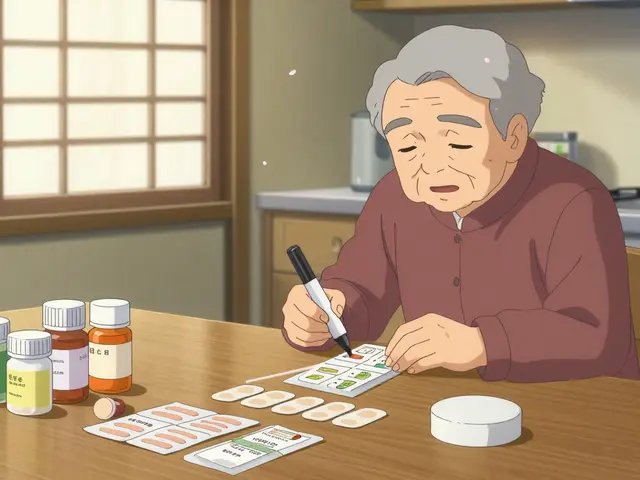Alternative Therapies: Real‑World Options You Can Use Today
If you’re tired of the same old pills, you’ve probably heard about alternative therapies. They aren’t magic tricks – they are real methods that many people use to feel better without relying only on prescription drugs. Below we’ll break down why they matter and which ones are actually worth a try.
Why Consider Alternative Therapies?
First off, alternative therapies can fill gaps where traditional medicine falls short. Some conditions, like chronic migraines or mild anxiety, respond well to lifestyle tweaks, supplements, or mind‑body techniques. You also avoid many side effects that come with strong pharmaceuticals.
Second, they’re often cheaper and more accessible. A bottle of L‑arginine costs a fraction of a brand‑name erectile dysfunction pill, yet studies show it can improve blood flow for some men. The same idea applies to herbal extracts for cholesterol or natural sleep aids instead of prescription sedatives.
Finally, many alternatives are backed by solid research. For example, CGRP inhibitors have reshaped migraine treatment, while physical therapy remains a cornerstone for skeletal muscle recovery. When you pair evidence‑based options with personal preference, you get a plan that actually fits your life.
Popular Alternatives You Can Try Today
Natural Tadalafil Alternatives: If you’ve read about L‑arginine, ginseng, or other botanicals, know they’re not just hype. Clinical trials show moderate improvements in erectile function for men who supplement with these ingredients alongside healthy habits.
Migraine Prophylaxis Beyond Inderal: Topiramate and newer CGRP inhibitors are proven to cut attack frequency. Adding magnesium‑rich foods or regular aerobic exercise can boost results without extra meds.
Physical Therapy for Muscle Issues: Targeted exercises, manual therapy, and progressive loading rebuild strength faster than rest alone. A therapist can customize a plan that reduces pain and prevents future injuries.
Herbal Allergy Relief (Allegra Alternatives): Fexofenadine works well, but some people find relief with quercetin‑rich foods or nasal saline rinses. These low‑risk options can cut down on daily antihistamine use.
Mental Health Boosters: Theanine from tea leaves eases stress without drowsiness. It’s a simple addition to your morning cup that supports calm focus, especially when combined with regular sleep hygiene.
Each of these alternatives ties back to a deeper article on our site – whether you’re looking for a step‑by‑step buying guide or detailed safety tips. We keep the info up‑to‑date so you can make informed choices.
Before you jump in, talk with your healthcare provider. They can help you avoid interactions (like mixing MAOIs such as Emsam with certain foods) and ensure the alternative fits your overall treatment plan.
Ready to explore? Browse our collection of posts on natural supplements, non‑drug migraine fixes, safe online pharmacy tips, and more. You’ll find practical advice, real‑world experiences, and clear dosages so you can start right away.
The Role of Alternative Therapies in Managing Bronchial Asthma
After diving into the topic of alternative therapies for managing bronchial asthma, I've found out that these non-conventional methods can complement traditional treatments. They can help control symptoms and improve the quality of life for people living with this condition. Techniques such as breathing exercises, yoga, and acupuncture are gaining recognition for their role in asthma management. However, it's crucial to remember these therapies should not replace prescribed medication but rather serve as supplementary tools. Always consult with a healthcare professional before starting any new treatment plan.





